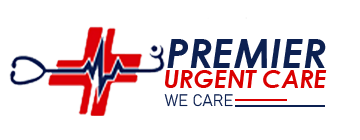
HERNIATED DISCS

A herniated disc may occur in the lower back or neck. Symptoms of a herniated disc include:
-
Pain in the arm or leg
-
Numbness or tingling
-
Weakness
Some patients don’t experience any symptoms and might not know they have a herniated disc until they undergo an imaging scan.
In severe cases, a herniated disc can compress the entire spinal column and lead to the following symptoms:
-
Pain, numbness, or weakness that hinders daily activities
-
Bladder or bowel dysfunction
-
Saddle anesthesia, or loss of sensation that affects the inner thighs, back of the legs, and area around the rectum
-

A herniated disc is often caused by aging-related wear and tear, also called disc degeneration. Over time, the disc loses flexibility and becomes more susceptible to tears or ruptures caused by a minor strain or twist.
Other potential causes of a herniated disc include a traumatic event, such as a fall or blow to the back, or a car accident.

The following factors can make an individual more likely to develop a herniated disc:
-
Excess Weight. Too much weight can cause significant stress on the discs in the lower back.
-
Occupation. Repetitive lifting, pulling, pushing, bending sideways, and twisting puts extra strain on the back.
-
Genetics. Some patients are genetically more likely to develop a herniated disc.
-
Smoking. Smoking may decrease the oxygen supply to the discs and cause them to degenerate more quickly.
-
Frequent Driving. Sitting for long periods of time, combined with vibrations from driving, puts extra pressure on the spine.
-
Sedentary Lifestyle. Regular exercise can help strengthen the back and surrounding muscles to prevent a herniated disc.
-
At Premier Urgent Care, symptoms of a herniated disc may be treated with injections and pain management techniques. Depending on the location of the herniated disc, patients may benefit from joint and soft tissue injections offered at the clinic, which include nerve blocks, epidural injections, piriformis injections, sacroiliac joint injections, and trigger point injections. Patients should speak to their physician to find out if they might experience pain relief from joint and soft tissue injections.
Pain management techniques can also help patients minimize pain through cold and heat therapy, gentle exercise, physical therapy, massage, acupuncture, cognitive behavior therapy, yoga, deep breathing exercises, progressive muscle relaxation, biofeedback, music therapy, and nonsteroidal anti-inflammatory medication.
Some patients may require advanced treatment for their herniated disc, such as chiropractic adjustment and even surgery. Premier Urgent Care supports patients needing a range of treatments and staff is available to answer any questions about obtaining advanced treatment.
A herniated disc is a condition affecting the rubbery cushion located between the vertebrae of the spinal column. The disc has a soft center, called a nucleus, contained within a tougher exterior. A slipped or ruptured disc is when part of the nucleus slips out through a tear in the annulus.
